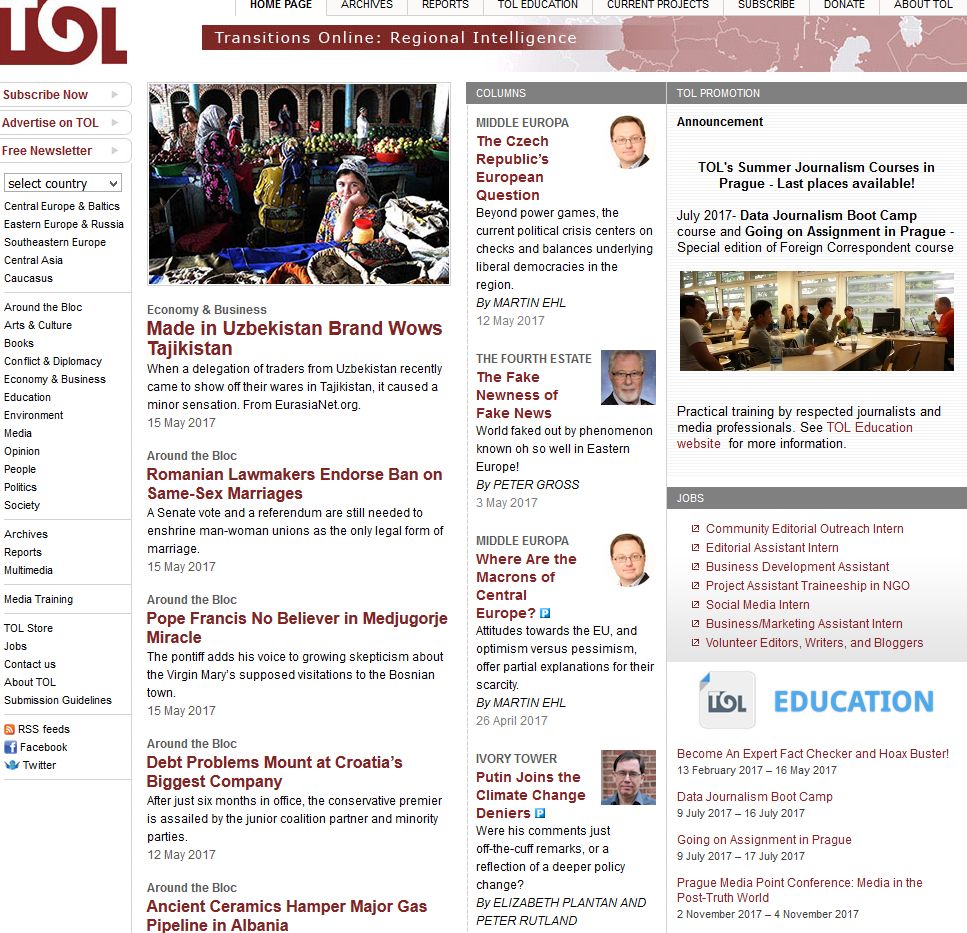
Around the Bloc: Russian Spy Sentenced to Prison in Estonia
The Baltic country has experienced a growing number of people spying on behalf of its eastern neighbor.
More...We kindly inform you that, as long as the subject affiliation of our 300.000+ articles is in progress, you might get unsufficient or no results on your third level or second level search. In this case, please broaden your search criteria.

The Baltic country has experienced a growing number of people spying on behalf of its eastern neighbor.
More...
The article analyses the most important problems related to governance of the Polish energy sector prior to the adoption of the 2030 EU Climate and Energy Policy Framework. The document was to introduce major changes in the Polish energy mix due to restrictions placed upon the emissions of the CO2 and requirements related to the renewable sources of energy. The paper argues that in fact this overshadowed the pre-existing management problems of the Polish energy sector, in many aspects more serious than the provisions of the Framework itself.
More...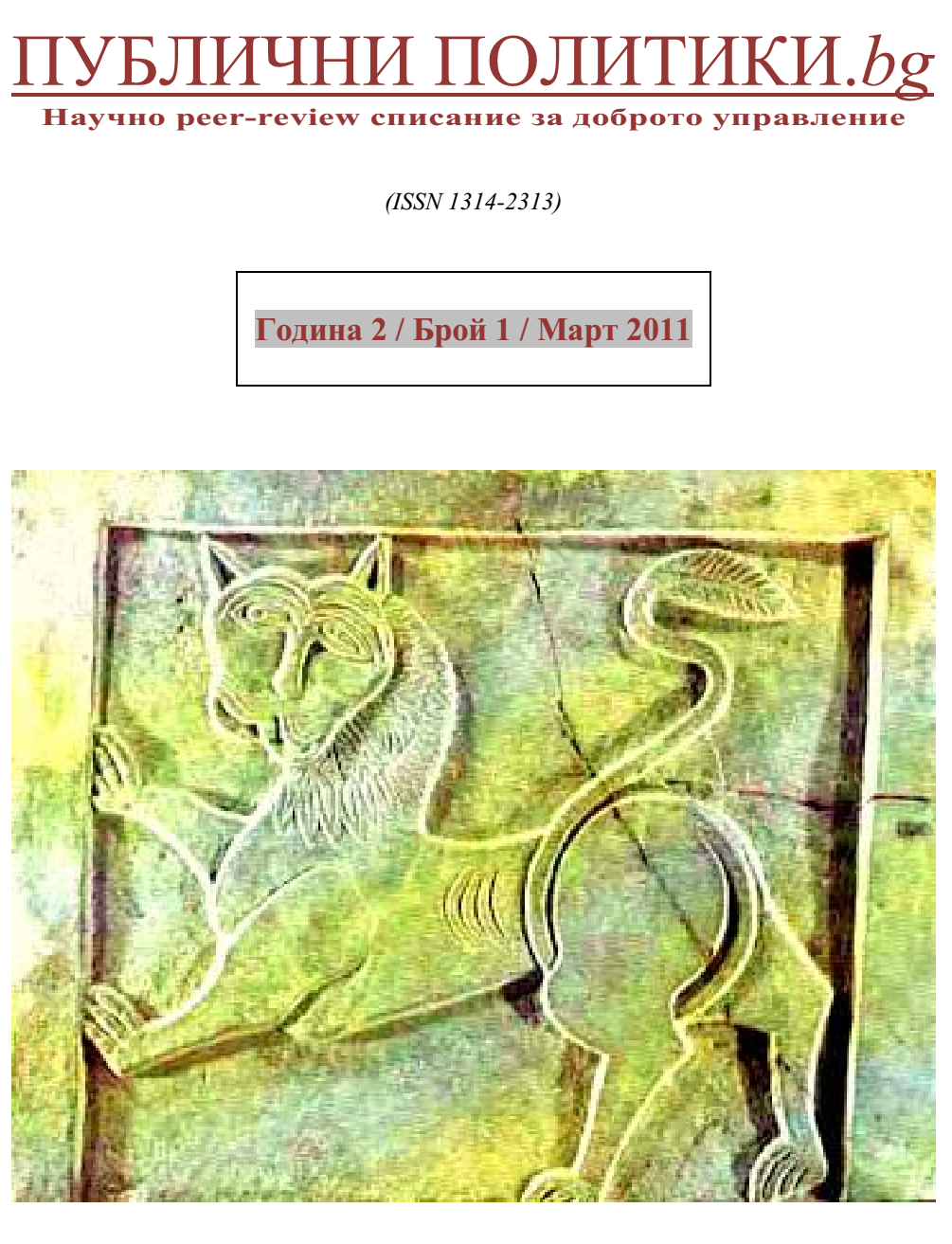
We adhere to the paradigm of “rule of law” and the concept of “good governance”, in particular, according to which public institutions not only act within the lawful limits but first and foremost protect the rights and interests of citizens in accordance to the law. Assuming Bulgaria is a society in transition we want to test empirically the extent to which it has broken away from the communist system, in which the state dominates over people. This empirical test has been carried out through a normative analysis of the articles and catches of two Bulgarian laws – the "State Administration Act" and "Civil Service Act"(literary “State Service Act”, in Bulgarian). The paper presents our major findings, which confirm the hypothesis that these two laws do not provide for a systemic social regulation because it would render a systemic social change. Such a qualitative change has not been pursued because the strong power of the centralized state has been endorsed to reform the Bulgarian society in an authoritative way. The half-way social changes, reflected in our normative acts, serve not the public interest but the ad hoc political task of transition.
More...
The political participation and the political representation as the two segments through which the political integration operates depict how the issue of Others reflects the society in Bosnia and Herzegovina. At this point, the political participation to some extent could be considered as an identity marker in the case of the Others. From the bottom-up perspective, the Others are illustrated as a conglomeration bridging over the ethnic divisions. Moreover, in the setting of the political participation, being an Other could mean more than just a simple census identification, but a thoughtful response to the increasing ethnonationalisms reflected in the party system, as well as in many other spheres of the Bosnian society. On the other hand, thinking ‘from above’, the political representation is related to the integration of the Others in the state institutions. Here, the focus would be to analyse the current mechanisms of inclusion of the Others in the state organs as determined by the provisions in the constitutions of Bosnia and Herzegovina, of Republika Srpska and of the Federation of Bosnia and Herzegovina. The consequences of the political misrepresentation are studied through the Sejdić and Finci v. BiH case1 opening the debate for fundamental constitutional changes that should guarantee equal treatment of all the citizens in Bosnia. Furthermore, the political misrepresentation is (and was) triggering the fear of becoming minority or of becoming an Other in BiH in the context of the first postwar census that took place in the autumn of 2013.
More...
Education is part of our culture, as a society and, at the same time, it is part of each of us. The degree and level of civilization and the true system value are reflected in the way in which this education activity is carried out. Both crime and education are equally old, lost in the mists of time, which represents their common feature. However, human history has proven that education can simultaneously be a criminogenic factor and an effective mechanism used in the prevention of, and fight against crime.
More...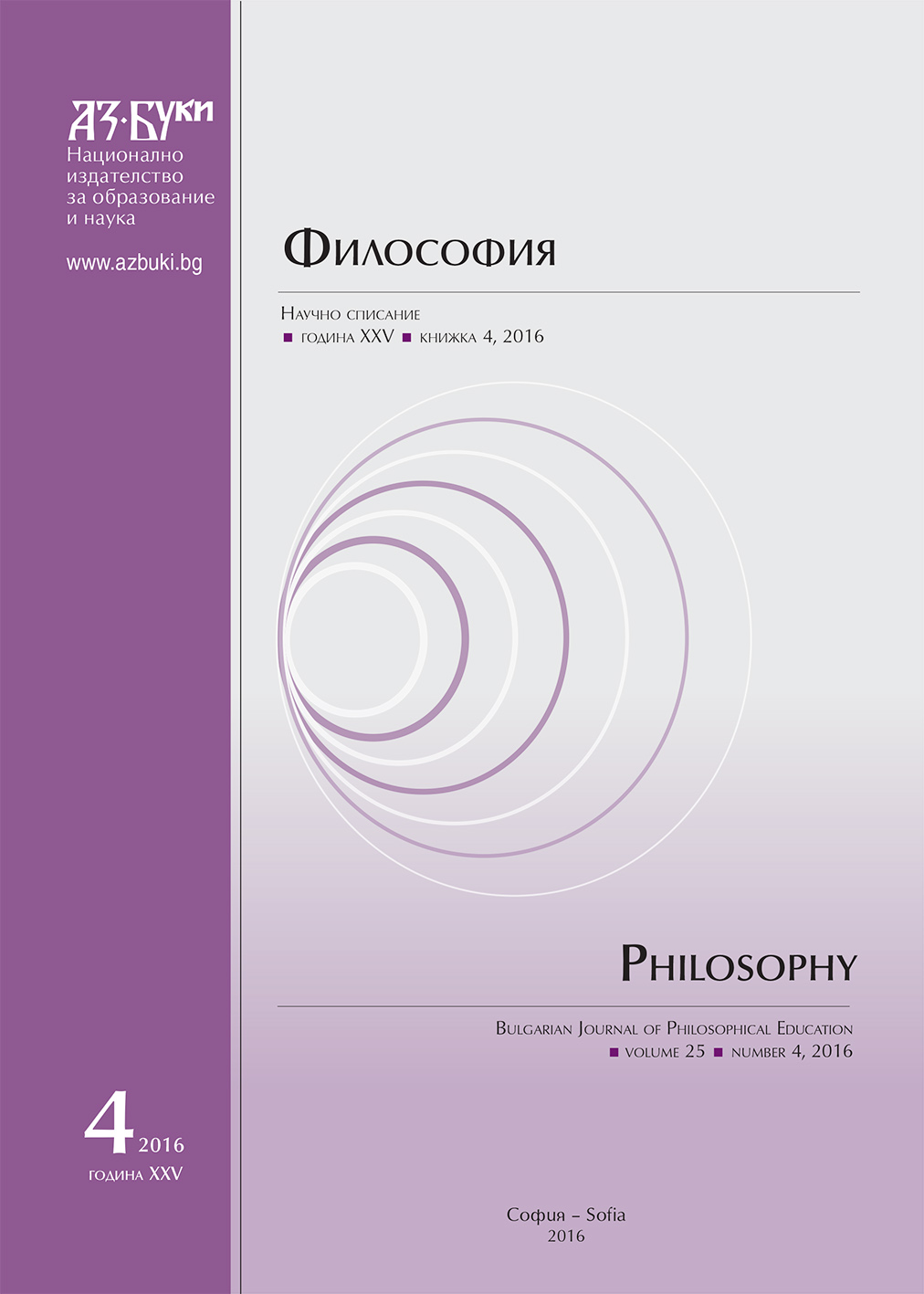
As a result of this study, this article presents the reader, in a summarized way, the structure, compositional elements, logical and rhetorical content of the judicial speech, in particular prosecution and defense speech, from the standpoint of philosophy of law. The question of equivalence and application of ethics, morality and truth in the law is up to date from Antiquity to the present day. These moral categories can be analyzed in depth mostly by philosophical science, with the help of its constituents – ethics, aesthetics, rhetoric, logic. It is sufficed to recall the Roman maxim – In jure veritas (At right is the truth). Accordingly, the search for truth, evidence, reasoning and ways of arguing are the leading ideas and major themes of the analytical text.
More...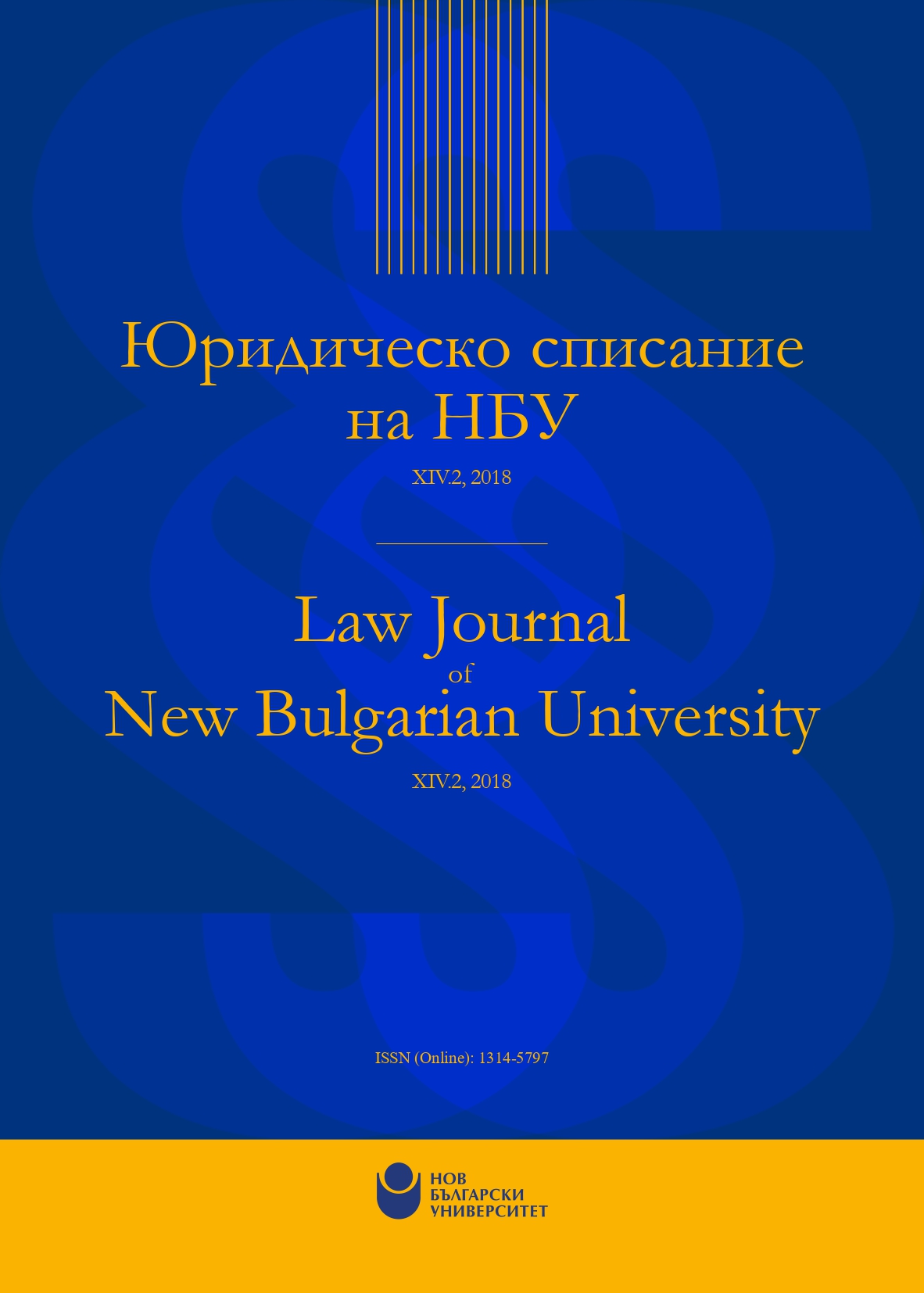
This study explores the abuse of superior bargaining position as set in Article 37a of the Bulgarian Competition Protection Act (CPA). The provision of art 37a is analyzed from the comparative point of view as to the existing normative regimes in jurisdictions like Japan and Germany. Unlike most studies on the abuse of superior bargaining position, the author maintains the view that the prerequisites in Article 37a of CPA set the institute as a part of the competition law rather than as part of the law of unfair commercial practices between enterprises. In support of this opinion the author performs a comprehensive review on the existing practice of the Commission for the protection of competition regarding Article 37a of CPA.
More...
Ownership and the right of ownership are formed in a specific historical and social context. Knowing these differences, as well as the reasons for their existence, may serve as a guarantee for the successful realization of the rights and for their protection. This paper discusses some specifics of the ownership in Bulgaria, which have been differentiated as a result of the social and economic relations from the Middle Ages to the present days. Such distinction is carried out in the paper on the basis of the differences between East and West (in a religious context), between country and town as well as natural exchange and monetary exchange.
More...
This study briefly presents the development of personal data protection and its relation to the right to respect for private life. Some of the key points set out in the new Regulation (EU) 2016/679 of the European Parliament and of the Council of 27 April 2016 on the protection of natural persons with regard to the processing of personal data and on the free movement of such data, and repealing Directive 95/46/EC (General Data Protection Regulation) regarding the balancing of the right to expression are under discussion in the paper. Due to the fact that the GDPR obliges Member States to reconcile by law the right to the protection of personal data with the right to freedom of expression and information, including processing for journalistic purposes and the purposes of academic, artistic or literary expression, some general remarks and comments are made towards the Draft Articles for the amendments in the Bulgarian Law on Protection of Personal Data and its conformity with the GDPR.
More...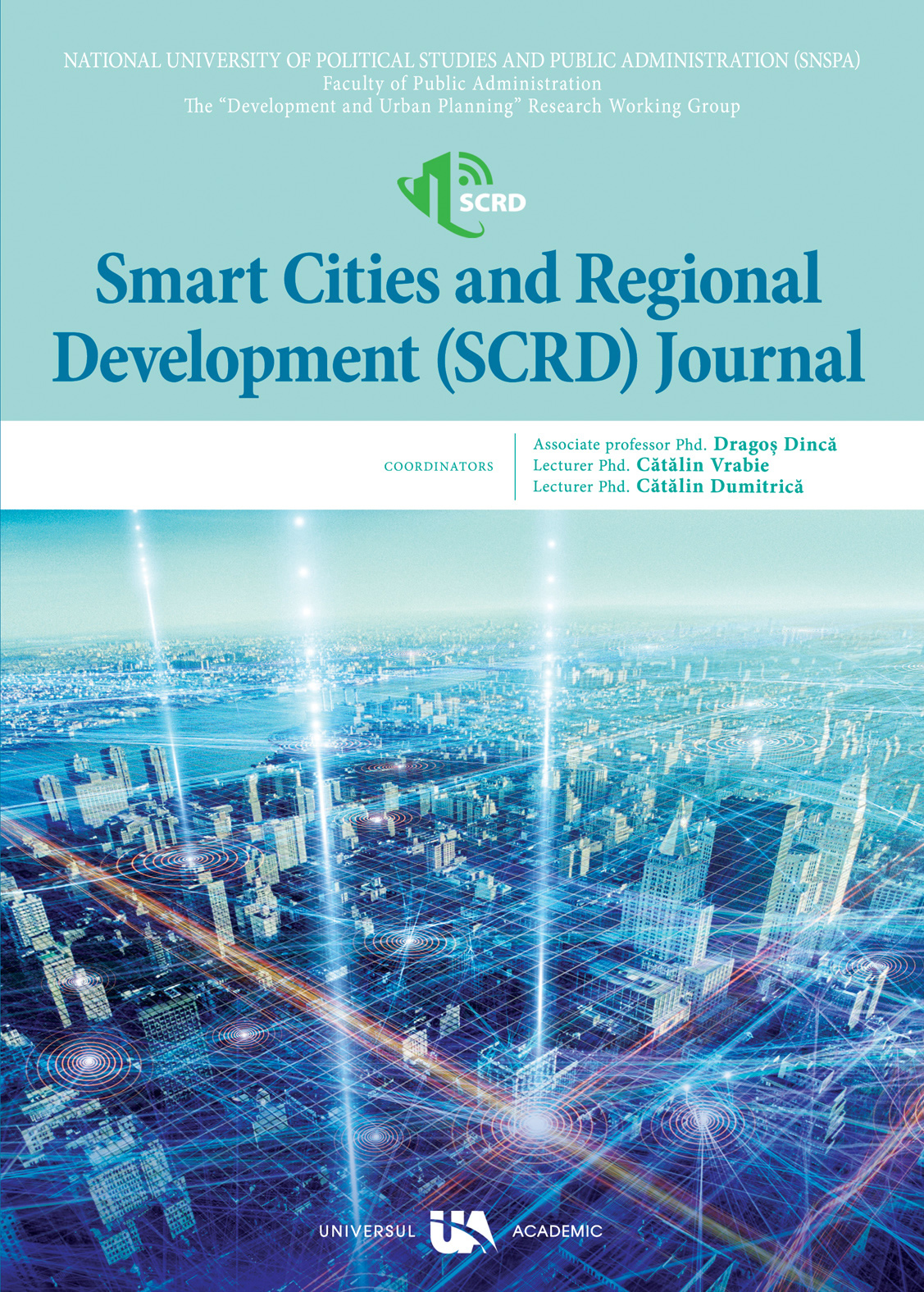
This paper was developed on the base of experience realization of the state pilot project in the field of reform of the emergency medical service (EMS) in the Odessa region (Ukraine). The core idea behind the paper is to propose an information infrastructure that allows medical and other services to get instant messages on problem situations which necessary joint activities for the saving lives of the people. This infrastructure will use for alert about accidents only those service that are needed to perform joint actions to people salvation in the particular situation. For this in the paper is to provide a review, analysis, and identification of opportunities for the EMS community to address information infrastructure developments of emergency medical service as a part of the smart city solutions. Besides, was summarized the overall impact that digital communications, information infrastructure could have on EMS and their influence on how EMS system (in Ukraine it's 112 service ) might operate in the year 2020 and after this period; also proposed a model for how these technologies might be used by EMS system and how digital technologies can help avert the bad interoperability of emergency services– and improve the response on the emergency situation when they do occur.
More...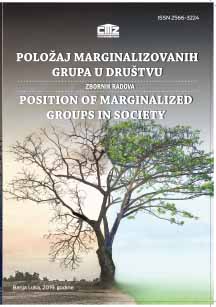
Marginalization and the combination of political extremism with ethno-social conflicts can easily lead to extremism questioning rule of law and the basis of our liberal thinking parliamentary democracy. Hungary was facing many of these challenges after the political-economic transformation of 1989 and 1990. The risk of marginalization in a market economy is quite high and widening the gap among people is a still existing problem which will remain with us in the near future for sure. The last decade showed examples of dissatisfaction among certain social groups where extreme thoughts could be transformed into aggressive movements what we have experienced in Hungary following both a political crisis in 2006 and an economic depression in 2008.
More...
The increase of the number of children who are recidivists in perpetration of criminal acts indicates that there is inappropriate response to the needs of the children. The stratification, poverty and unemployment result with revolt of the children towards the dysfunctional system, which leads to aggressiveness and violence. The family, namely the parents are role models for perception of positive identification at children and imposing of own parenthood styles (authoritarian style, permissive style, democratic style or indifferent style). The disfunctionality of family leads to incapability for fulfilment of the obligations for assistance, care and protection of the children. The conducted research with the families related to the profile of the recidivist children in conflict with the law, resulted with cases of: children living with both parents, children with a status of children born in marriage, family not in position to control the child’s behavior, serious social problems in the family, parents with completed primary or secondary education, employed father, unemployed mother, beneficiaries of social financial assistance or with salary above 21.000 denars and children living with the parents in their own house. The results from the conducted research indicate the need for long-term solutions for proactive interventions through modification of informal and formal mechanisms in line with the needs of the children in conflict with the law. Interventions should be based on professional work with the children, their families, utilization of the local resources in the community through intensive family therapy and established support network; overall planning, implementation, monitoring and evaluation of the interventions; and modification of interventions according to the individual needs of the children.
More...
Labeling is a natural and innate process by which our brain tries to divide information that is more important to us than those that are not so essential to our previous experience, and thus makes life easier and shortens the process of information processing. In this process, it is often the case that we accidentally "put a sticker" on some person based on some of their traits, and thus we create an attitude on that person, behave according to the label, and according to some labeling time research may result in permanent change in behavior according to the label obtained. Such a phenomenon R. Merton called a self-fulfilling prophecy. Some social groups are more susceptible to labeling and stigmatization, and one of them is a person of deviant behavior. Deviating behavior, as a rule, does not mean at the same time criminal behavior, that is, behavior that deviates from the expected pattern of behavior, does not follow norms, i.e. does not follow the formal behavior of a society. Criminal personality can also be called a deviant, but a deviant is not a criminal, but if we personally label it sufficiently, we marginalize and reject it from a dominant society, or culture, might look for "similar to oneself" and society that will accept it as it is or a society that is really of a criminal nature, reconciling with its attributed status and beginning to behave according to the behavior expected of the group we have identified with it.
More...
The term right-wing extremism is often used to describe Nazism, fascism and other ideologies or organizations that have ultranationalist, chauvinistic, xenophobic, racist and anti-communist views. In recent years, there has been an increase in the popularity of right-wing ideologies in Europe, for many it is the highest percentage of popularity since World War II. Observed through historical phases, extreme right-wing parties were marginalized in the post-World War II period, and their ideologies discredited due to a fresh recollection of the existence and defeat of Nazism. From the mid-'50s to the '70s, the most right-wing parties attracted charismatic leaders whose deep distrust of the political establishment led to the emergence of the so- nationality. In the early 1980s, the election successes of right-wing political candidates enabled extreme right-wing political parties to revitalize anti-immigration as the main issue. The causes of the strengthening of right-wing political options in Europe can be identified first in times of major economic crises and the lack of social cohesion. In doing so, the leaders of the right-wing parties use social disorders such as migration, violent extremism that leads to terrorism, etc., for the production of fear, the spread of intolerance and the mobilization of nationalist forces.As already tested in case of the ideology of Nazism, advocating for one's own nation as superior and proclaiming other, usually minority nations for enemies, today's right-wingers in some European countries use the same matrix. In Germany in the 1930s, the Jews and the Roma, and nowadays persecution is called by migrants or Muslims, the target will be another tomorrow, because in order to get votes and achieve national unity, the enemy must also be found. What is troubled by the democratic public in countries where right-wing parties increase in the number of parliamentary mandates, this trend can lead to oppression and violence against groups of people based on their belonging to minority peoples, ethnic groups, or simply different liberal perceptions and views on society. Right-wing ideologists use the migrant crisis to revive the dangerous ideology of Nazism, closing up borders with wires across the Europe for migrants, while also surpressing some civil society organizations, undermine the foundations of an independent judiciary, diminish media freedom. All this has already been seen in Nazi Germany after coming to power in the Nazi Party in 1930. In some European countries, paramilitary groups are formed, and such groups that have carried out exercise activities have been discovered in the forests of Germany, Slovakia, the Czech Republic, Bulgaria and even Slovenia. For historical reasons, and because of the current global developments in the world, it is evident that in fact, right-wing extremism is a security threat, and it is necessary to clearly point out the potential danger.It is not so problematic the right-wing parties that hide from the Nazi doctrine and methods of action, those who do not call for violence in their program, however, these others pose a threat to security and, consequently, a liberal democracy that promotes the ideology of multiculturalism.In Southeast Europe, and especially in Bosnia and Herzegovina, democracy is fragile and needs to respond to all violence and hatred, and preserve the foundations of the European Union - tolerance, freedom of speech, if it does not call for violence, and other fundamental human rights.
More...
In the early 1960s, the country was overwhelmed by violence, riots, racism, noisy scandals, brutal beatings, and even deaths on stadiums and streets. This behavior, known today as football hooliganism, goes beyond the borders of England and the late 1970s, early 1980s became a pan-European problem. Almost every year in the world stadiums happen misfortunes.
More...
European Union law is an autonomous legal system consisting, according to the doctrine of primary and secondary law, governing the functioning of the European Union as a whole and closely related to the international law and the legal systems of the Member States. Among the most important acts of primary law are the three founding treaties for the European Communities.
More...
Since the early 1990s, the global public has been faced with the tremendous challenges that the global internet network creates with its complex functionality, an avalanche of growing popularity in view of the opportunities it offers and its dynamically changing parameters.
More...
In September 2003, the National Assembly passed the Law on Protection Against Discrimination (APA). The legislator has taken the approach of creating a common one a law that is subject to legal protection against all forms of discrimination and ways to prevent it (see Art. 1). In Section I of Chapter II (Articles 12-28) regulates the substantive protection against labor discrimination - the legal regulation of subjective rights and the legal obligations of legal entities (employer and employee), the order for their exercise and the execution, termination or suppression of violations of subjective rights, the penalties for failure to fulfill legal obligations.
More...
When the testator did not leave a will to distribute his estate after his death, the Inheritance Act of 1949 (PA) imperatively determines the circle of heirs of the deceased person as well the shares they follow.
More...
Obligations can no doubt be secured by claims belonging tothe debtor or third parties. Only claims that can be bet can be pledgedtransferred, ie whose nature permits disposition (Art. 162 of the LPP).
More...